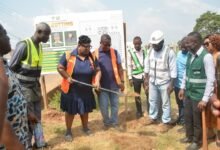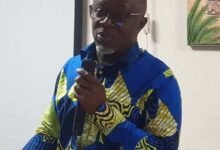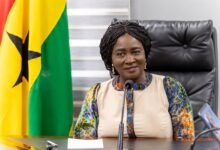Centre of excellency in public utility regulation in offing

The Board Chairman of the Public Utilities Regulatory Commission (PURC), EboB. Quagraine, has hinted that plans were far advanced for the commission to establish a Centre of Excellence in Public Utility Regulation.
When inaugurated, he said the centre would contribute to developing the field of public utility regulation in Africa by building the capacity of regulatory experts and researchers in the science and arts of regulating electricity, water and natural gas utilities.
Mr Quagraine made this known at the PURC’s silver jubilee lecture on the theme “Celebrating 25 Years of Utility Regulation in Ghana,” in Accraon Monday.
“The centre will also provide education and training in regulatory and policy-decision making, engage in cutting edge research and publications in economic regulation, and facilitate scholarly dialogues on the economic and quality of service regulatory discipline,” he added.
Mr Quagraine indicated that the Public Utilities Regulatory Information System (PURIS) of the commission was rolling out the quarterly performance of utilities against regulatory benchmarks for System Average Interruption Frequency Index (SAIFI), Customer Average Interruption Duration Index (CAIDI) and system losses.
“This is work in progress, currently available on the PURC website to make accessible to the public, information on the operations and performance of public utilities,” he added.
Again, the PURC Board Chairman said the commission had developed a Tariff Reckoner App to enable consumers of utility services to calculate their cost usage of the service rendered by the Electricity Company of Ghana (ECG) and the Ghana Water Company Limited (GWCL).
“The Tariff Reckoner, which is also accessible on the PURC website, can also be downloaded on the Google play store,” he stated.
“The app allows you to select your customer type and your computation preference, that is, whether you want to compute amounts (in Ghana cedis) from consumed electricity (kwh) or water (m3), and vice versa,” he added.
Mr Quagraine underscored that the lecture was the first in a series of regulatory conversations that the commission intended to roll out to look at the road-blocks that hampered the work of regulators in Africa.
“Key among these are overall macro-economic environment which erodes whatever gains are made in terms of price adjustments, thus repeatedly causing a reset for the regulator to grapple with,” he added.
Executive Secretary, PURC, Dr Ishmael Ackah, noted that the commission as required by law had developed a utility pricing regime that was impartial and had a clearly defined consultative process for examining and monitoring prudent cost.
“This has facilitated the smooth unbundling of the power system with open access transmission operations which serves as the backbone for competition in the electricity market,” he stated.
“The natural gas is equally unbundled with gas transmission pricing being regulated by the commission. In the water sector, the commission has supported the government’s efforts at restructuring to improve economic efficiency, quality improvements, and better customer service,” he added.
BY ABIGAIL ARTHUR








